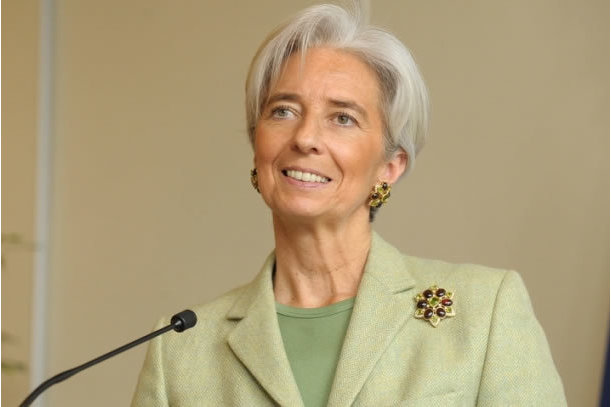Latest News
IMF forecasts 3% GDP growth in Sub-Saharan Africa in 2016

News Highlight
- 2016 growth is the lowest in 15 years.
- IMF said the weakening growth in SSA is a result of the steep decline in commodity prices and tighter financing conditions.
The International Monetary Fund (IMF) said on Tuesday that it expects growth in Sub-Saharan Africa (SSA) to slow further from 3.5 percent in 2015 to 3 percent in 2016, the lowest in 15 years.
In its latest Regional Economic Outlook for SSA, the IMF said the weakening growth in SSA is a result of the steep decline in commodity prices and tighter financing conditions that have put many large economies under strain.
“After a prolonged period of strong economic growth, sub-Saharan Africa is set to experience a second difficult year as the region is hit by multiple shocks .” the IMF said.
As a result of the slump in commodity prices, oil exporters such as Nigeria, Angola, and five of the six countries within the Central African Economic and Monetary Community continue to face particularly difficult economic conditions, according to the multilateral institution.
The commodity price shock has also affected non-energy commodity exporters, such as Ghana, South Africa, and Zambia.
Compounding this shock, external-financing conditions for most of the region’s frontier markets have tightened substantially compared to the period until mid-2014 when they enjoyed wide access to global capital markets.
More so, a severe drought in several southern and eastern African countries, including Ethiopia, Malawi, and Zimbabwe, is putting millions of people at risk of food insecurity.
Yet, the IMF said the impact of these shocks varies significantly across the region and many countries continue to register robust growth, including in per capita terms.
In particular, most oil importers are faring much better with 5 percent growth or higher being recorded in countries such as Côte d’Ivoire, Kenya, Senegal, and many low-income countries. These countries continue to benefit from infrastructure investment efforts and strong private consumption.
“While the immediate outlook for many sub-Saharan African countries remains difficult, the region’s medium-term growth prospects are still favourable,” the IMF said. “In particular, the region’s much improved business environment and favourable demographics should help bolster growth in the medium term.”
In order for countries to reap this strong growth potential, the IMF said a substantial policy reset is needed, as the policy response so far has been generally insufficient.
The IMF advised commodity-exporting countries to contain fiscal deficits and build a sustainable tax base from their economies as revenues from the extractive sector are likely to be durably reduced.
“The required measures may come at the cost of lower growth in the short-term. However, they will prevent what could otherwise be a significantly more costly disorderly adjustment. These policies would lay the ground work needed for the region to reap the substantial economic potential which still lies ahead,” the IMF said.
Related News
Latest Blogs
- Tinubu’s promising revolution in infrastructure development
- Has Tinubu’s economic reform started working?
- Implications of relaxed FCPA enforcement in Nigeria
- Between legality and legitimacy of Egbetokun’s tenure extension
- Of American aid and imperial destabilisation of Nigeria
Most Popular News
- Artificial intelligence can help to reduce youth unemployment in Africa – ...
- TCN assures fully functional SCADA system in six months’ time
- MTN Nigeria records N400 billion net loss in full year 2024 results
- Analyst provides mixed reaction to Nigerian equity market performance
- Stakeholders agree to improve resilience of submarine telecoms cables
- AI Startups account for 43 percent of new unicorns









